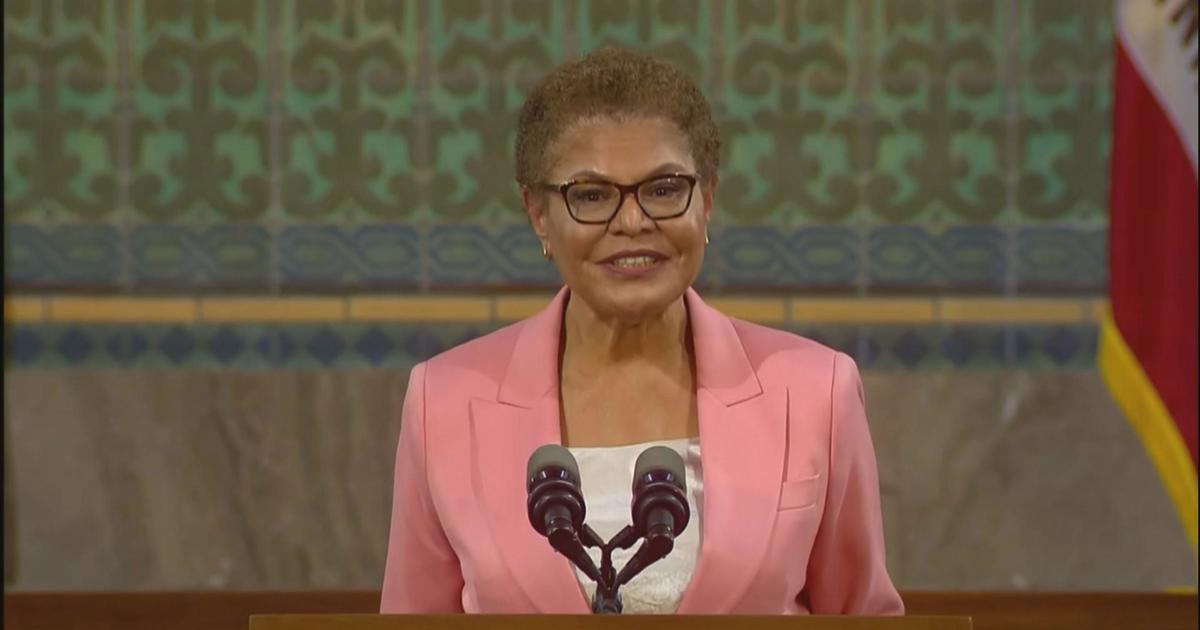State Budget Plan Relies On 'Creative Accounting'
SACRAMENTO (AP) — A proposal that attempts to end California's record-long budget impasse and close a $19 billion deficit focuses primarily on targeted spending cuts and a large dose of creative accounting.
No new taxes or fees are included in the agreement, which was reached late last week between Gov. Arnold Schwarzenegger and the four Republican and Democratic leaders of the Assembly and Senate.
The plan instead relies on a series of assumptions and accounting maneuvers that in all likelihood will pass on many of this year's budget problems to the next governor.
Do Lawmakers Even Know What's In The New Budget? State Senator Tom Harmon talks with KNX 1070's Dick Helton, Jack Popejoy, and Vicky Moore
Podcast
It also includes a plan to create a stronger rainy day fund and some pension reforms, both demanded by Schwarzenegger as a condition for his signing any budget bill.
The agreement targets new state employees by rolling back lucrative pension benefits granted 11 years ago and would end a practice in which government workers could boost their pensions by getting raises during their final year of service. The pension rollback would not apply to current employees.
"We always said that there were no good (budget) solutions left, which is why the governor was so adamant about getting the reforms necessary to fix our system," said Schwarzenegger spokesman Aaron McLear. He said the cuts and reforms "will absolutely help future leaders of this state govern more efficiently."
Late Wednesday, the largest union in state government tentatively agreed to a pension reform plan, officials said.
Department of Personnel Administration spokeswoman Lynelle Jolley said the plan must still be approved by Legislature and the 95,000 members of the Service Employees International Union Local 1000.
Jolley said the plan would roll back pension formulas for new employees to pre-1999 levels, and increase current employees' contributions toward pension benefits by 3 percent. It would also include one day of unpaid leave per month for each employee, which reduces pay by roughly 5 percent.
Earlier Wednesday, a joint Senate and Assembly budget committee heard testimony from the state's tax collectors and Department of Finance during a brief. The committee's chairwoman, Sen. Denise Ducheny, D-San Diego, said much of the budget's technical language was still being written before budget votes scheduled for Thursday in the full Senate and Assembly.
Wednesday's meeting gave the first public airing -- however brief -- of the agreement reached between the Republican governor and top lawmakers. It is filled with assumptions that may underestimate actual income.
For example, it counts on the state receiving $5.3 billion from the federal government, nearly $2 billion more than Schwarzenegger projected in May. Schwarzenegger and the legislative leaders also assume an economic recovery in California that would be robust enough to send $1.4 billion in additional tax revenue to state coffers.
The deal also would delay nearly $2 billion in payments to K-12 schools and community colleges until the next fiscal year.
Senate President Pro Tem Darrell Steinberg, D-Sacramento, acknowledged last week that the budget negotiators had little choice but to engage in what he called "creative" accounting to reach a deal. That's because Republicans refused anything that could be interpreted as a tax or fee increase, while Democrats were unwilling to cut more than $7.5 billion in spending.
To patch last year's budget gap, the Legislature and Schwarzenegger agreed to temporary increases in the vehicle license fee and sales and income taxes. Voters rejected a proposal to extend those taxes during a May 2009 special election, leading Schwarzenegger to say he would not agree to higher taxes this year.
The assumptions used to reduce the $19 billion deficit in the current plan mean Schwarzenegger is leaving the budget mess to his successor, either Democrat Jerry Brown or Republican Meg Whitman, said Fred Silva, who spent 20 years working on budget issues in the state Senate.
This year's budget impasse represents the longest California has ever gone without an approved spending plan since the July 1 start of its fiscal year.
(© Copyright 2010 The Associated Press. All Rights Reserved. This material may not be published, broadcast, rewritten or redistributed.)



